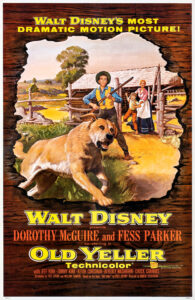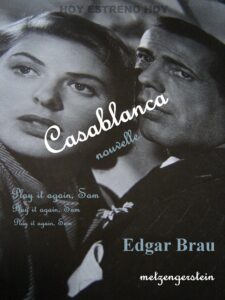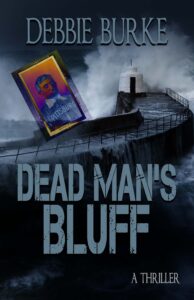By Debbie Burke
Recently I read an article by Daniel Pink in the Saturday Evening Post extracted from his bestselling book WHEN—The Scientific Secrets of Perfect Timing. According to various studies he cited, people like happy endings in books and films. No surprise there, especially in the current troubling times. Happily Ever After (HEA) in fiction fulfills a deep human longing because most of us wish for that in our real lives.
But the main point of Dan’s article was, while happy endings are good, the most resonant, memorable endings have sadness connected to them. The addition of bittersweet adds an important layer of emotional complexity beyond mere joy. He writes:
“The most powerful endings deliver poignancy because poignancy delivers significance. Adding a small component of sadness to an otherwise happy moment elevates that moment rather than diminishes it.”
The power of poignancy is why the endings of some stories stick with us for years, while other HEAs disappear from mind as soon as we close the book.
Dan’s article started me thinking about which books and movies still resonate in my memory years later.
Warning: spoiler alerts ahead.
I saw Old Yeller when the movie came out in 1957. A couple of times since then, I watched it but stopped before the climax (warning: grab a box of tissues before clicking this link). That scene remained seared in my mind. I didn’t want to start weeping again.
A boy, Travis, and his dog share an unbreakable bond until Old Yeller is bitten by a rabid wolf while saving the boy’s life. When Old Yeller is infected, Travis must shoot his dearest friend to keep him from suffering. It’s the hardest thing he’s ever done and may well be the hardest thing he’ll ever face in his entire life.
To soften the blow, the movie wraps up when Travis bonds with a new puppy from a litter sired by Old Yeller.
Consider this alternate ending: What if Old Yeller still saved Travis from the rabid wolf but walked away unscathed? Travis and Old Yeller trot off into the sunset, trailed by Yeller’s adorable puppies? Pure HEA, right?
Would the story still evoke the strong feelings it does more than six decades after I first saw it and bawled my eyes out? Probably not.
Charlotte’s Web had the same emotional power. Additionally, the first line is one of the greats in literature:
“Where’s Papa going with that axe?” Fern said.
Charlotte the spider dies after saving Wilbur the pig’s life and making him famous. The blow of her death is tempered because she left behind generations of children and grandchildren to keep Wilbur company for the rest of his days.
Alternate ending: What if Charlotte didn’t die but continued her friendship with Wilbur until, one peaceful night, they both passed away from old age? Would the ending be as memorable? Nah.
Witness (1985) with Harrison Ford and Kelly McGillis is not only a cracking good thriller but also a love story. Philadelphia detective John Book must protect Samuel, a young Amish boy who witnesses a cop’s murder. In the process, Book falls in love with the boy’s mother, Rachel. In the climax, the villains are thwarted and Samuel is safe. Mission accomplished. But Book must leave Rachel because, despite their love, he could never fit in her world and she could never fit in his.
Alternate ending: Book stays with Rachel in the idyllic Amish community and they share a blissful, if improbable, life together.
If screenwriter Earl Wallace had opted for the HEA above, would he have won the Oscar for Best Original Screenplay? I doubt it.
Perhaps the most famous bittersweet ending in film is Casablanca. Rick gives up the woman he loves and watches Ilsa walk away with her husband, not because Rick wants to, but because it’s the right thing to do.
Alternate ending: Ilsa tells Victor Laszlo to go back his resistance work without her and she and Rick share a passionate kiss in his saloon while Dooley Wilson reprises “As Time Goes By.”
With that HEA, would Casablanca have become an icon in movie history? Unlikely.
The examples cited above are all legendary. As authors, we can aspire to that status but most of us are happy if readers enjoy our stories, remember them, and want to buy more.
Mickey Spillane, who sold 225 million books in his career, famously said,
“Your first line sells the book. Your last line sells the next book.”
How does an author make endings satisfying and memorable enough to convert a reader into an avid fan who wants more? One way is to inject poignancy.
Here are several tools to help you add the bittersweet component.
The Wound: The hero ends up damaged. The wound doesn’t have to be physical; it can also be emotional, psychological, or spiritual.
During the journey, the hero suffers greatly. By the end, she is triumphant in achieving her goal, vanquishing the foe, solving the mystery, or righting the wrong. That’s the HEA part.
But her success comes with a cost.
She may have lasting effects from a bullet wound, PTSD from emotional and psychological wounds, or undergo a spiritual crisis when the belief or value system she’s always depended on collapses.
The wound can happen to another character, someone she cares deeply for. That loved one’s pain or death causes her to question if her success was worth it.
Disappointment: The hero may have worked his butt off to attain his desire but, once reached, he learns it’s not what he really wanted after all. Wiser after his journey, he must let go of his dream. The HEA can spring from his epiphany that there is a different, sometimes better, reward than the one he originally sought.
Sacrifice: The hero prevails but must give up someone she cherishes. She does the right thing at great personal loss to herself. The HEA stems from her satisfaction that her loved one is happy or safe.
Can you think of other tools to achieve poignancy? Please share them in the comments.
When an author successfully balances bitter and sweet, the reader feels the resonance to their core. In fiction and in life, there is no sweet without the bitter.
By tempering a happy ending with sorrow, joy may emerge as the dominant emotion but the complex feelings you evoke in a reader make the story more memorable and lasting than one that only taps into happiness.
Dan Pink concludes by saying:
“Endings can help us elevate—not through the simple pursuit of happiness but through the more complex power of poignancy. Closings, conclusions, and culminations reveal something essential about the human condition: In the end, we seek meaning.”
~~~
TKZers: Please share examples of your favorite endings in books or films and why they stuck with you.
What techniques do you use to inject poignancy into your work?
~~~
A high-stakes gamble. The winner lives. The loser dies.
Please check out Dead Man’s Bluff, Debbie Burke’s new thriller here.



